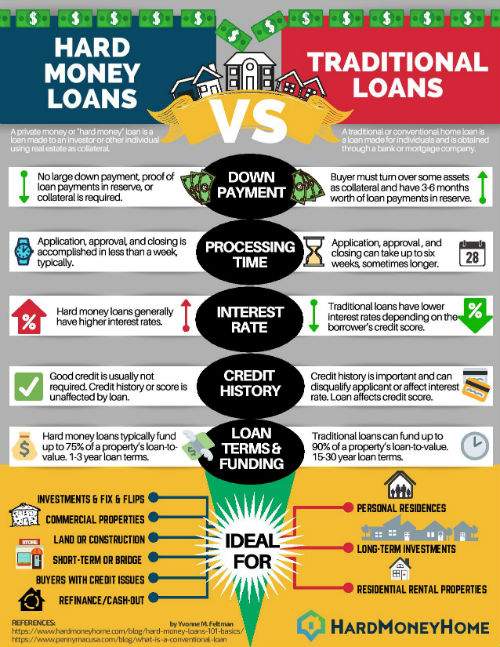Have you ever wondered how long it takes for hard money lenders to process a loan? Understanding the typical loan processing time in the realm of hard money lending is essential for borrowers seeking quick financing solutions. In this article, we will explore the factors that influence the loan processing time for hard money lenders and provide insights into how borrowers can expedite the process. Whether you are a real estate investor or entrepreneur in need of fast funding, knowing the ins and outs of loan processing time will help you make informed decisions and streamline your borrowing experience.

Factors Affecting Loan Processing Time
Borrower’s Preparedness
One of the key factors that can significantly affect the loan processing time is the borrower’s preparedness. When applying for a loan, it is important for the borrower to gather and prepare all the necessary documents and financial information required by the lender. This includes income statements, tax returns, bank statements, and any other supporting documentation that may be needed. By being well-prepared and organized, the borrower can help expedite the loan processing time and minimize any potential delays.
Lender’s Efficiency
Another factor that plays a crucial role in loan processing time is the efficiency of the lender. Each lender may have different processing procedures and timelines, and it is important for borrowers to choose a lender who has a track record of efficient and timely processing. A lender with streamlined processes and a dedicated team of professionals can help ensure that the loan application is reviewed and processed promptly, reducing the overall processing time.
Loan Complexity
The complexity of the loan itself can also affect the processing time. Loans that involve multiple parties, complex financial structures, or unique circumstances may require more time for underwriting and approval. For example, commercial loans or loans for investment properties often involve more extensive due diligence and evaluation, which can extend the processing time. It is important for borrowers to be aware of the complexity of their loan and factor it into their overall timeline expectations.
Property Appraisal
The appraisal process is another factor that can impact the loan processing time. When a borrower applies for a loan that is secured by a property, the lender typically requires a professional appraisal to determine the value of the property. The appraisal process may involve scheduling an inspection, gathering relevant property information, and conducting market research. Delays in the appraisal process, such as the unavailability of appraisers or complications in determining the property value, can prolong the loan processing time.
Underwriting Procedures
The underwriting process is a crucial step in loan processing, as it involves a thorough review of the borrower’s financial information, credit history, and the overall risk profile of the loan. Each lender may have their own underwriting procedures and criteria, which can impact the processing time. Some lenders may have more stringent underwriting requirements and may take longer to review and analyze the loan application. It is important for borrowers to understand the underwriting procedures of their chosen lender and be prepared for any potential delays that may arise.
Typical Loan Processing Steps
Initial Loan Application
The loan processing begins with the borrower submitting an initial loan application to the lender. This application generally includes basic information about the borrower, such as their personal details, income, and desired loan amount. The lender uses this information to determine the borrower’s eligibility for the loan and to initiate the processing of the loan application.
Documentation Submission
After the initial loan application is submitted, the borrower is required to provide supporting documentation to verify the information provided in the application. This documentation may include income statements, tax returns, bank statements, proof of assets, and any other relevant financial information. It is important for the borrower to gather and submit all the required documents promptly and accurately to avoid any delays in the loan processing.
Property Assessment
For loans that are secured by a property, the lender will typically conduct a property assessment. This assessment involves a professional appraisal to determine the value of the property and assess its marketability. The property assessment is an important step in the loan processing, as it helps the lender assess the collateral for the loan and ensure that it is sufficient to mitigate any potential risks.
Underwriting and Approval
Once all the necessary documentation has been submitted and the property assessment has been completed, the loan application goes through the underwriting process. During underwriting, the lender evaluates the borrower’s financial information, credit history, and the overall risk profile of the loan. The underwriter assesses the borrower’s ability to repay the loan and determines whether the loan meets the lender’s criteria for approval. This process may involve requesting additional information or clarification from the borrower and can take some time to complete.
Loan Offer and Acceptance
If the loan application is approved, the lender will present a loan offer to the borrower. The loan offer specifies the terms and conditions of the loan, including the loan amount, interest rate, repayment schedule, and any other relevant details. The borrower reviews the loan offer and decides whether to accept it. Once the borrower accepts the loan offer, the loan is considered to be officially approved.
Closing and Disbursement
The final step in the loan processing is the closing and disbursement of funds. During this stage, the borrower and the lender finalize the legal and financial aspects of the loan. This may involve signing the loan agreement, transferring ownership of the property (if applicable), and completing any other necessary paperwork. Once all the closing requirements are met, the lender disburses the funds to the borrower, completing the loan process.

Average Loan Processing Time
The average loan processing time can vary depending on various factors, including the type of loan and the lender’s specific procedures. However, as a general guideline, the following average processing times can be expected:
Short-Term Loans: 2-4 Weeks
Short-term loans, such as personal loans or small business loans, typically have a shorter processing time compared to long-term loans. These loans are usually for smaller amounts and have less complex requirements, resulting in a faster processing time. On average, short-term loans can be processed and approved within 2-4 weeks.
Long-Term Loans: 4-8 Weeks
Long-term loans, such as mortgages or commercial loans, often involve larger loan amounts and more in-depth underwriting procedures. These loans typically require a thorough evaluation of the borrower’s financial situation, credit history, and the property being used as collateral. As a result, the processing time for long-term loans is generally longer, with an average of 4-8 weeks.
Variances Based on Factors
It is important to note that the average loan processing times provided are just estimates and can vary based on individual circumstances and factors. Factors such as the complexity of the loan, the borrower’s preparedness, the lender’s efficiency, and external factors like market conditions can all influence the actual processing time. Additionally, unforeseen challenges or delays that may arise during the loan processing can further impact the overall timeline.

Tips to Expedite the Loan Process
While loan processing times can vary, there are certain steps that borrowers can take to help expedite the loan process and minimize any potential delays. Here are some helpful tips:
Prepare All Required Documents
One of the most effective ways to expedite the loan process is to gather and prepare all the required documents before submitting the loan application. By having all the necessary documentation readily available, borrowers can avoid any unnecessary delays caused by missing or incomplete information. It is important to carefully review the lender’s documentation requirements and ensure that all requested documents are submitted promptly and accurately.
Respond Promptly to Queries
During the loan processing, the lender may have additional questions or require further information from the borrower. It is crucial for borrowers to respond promptly to any queries or requests for information from the lender. Timely communication and cooperation with the lender can help prevent unnecessary delays and keep the loan processing on track.
Maintain Clear Communication with Lender
Effective communication with the lender throughout the loan processing is essential for a smooth and expedited process. Borrowers should maintain open lines of communication with the lender, promptly respond to any communication from the lender, and provide any requested updates or additional information as needed. Clear and transparent communication can help ensure that any potential issues or concerns are addressed promptly, minimizing delays in the loan processing.
Work with Experienced Professionals
Collaborating with experienced professionals, such as mortgage brokers or financial advisors, can also contribute to a faster loan processing time. These professionals have in-depth knowledge of the loan application process and can guide borrowers through each step, helping them navigate any potential hurdles and avoid common pitfalls. By leveraging their expertise, borrowers can streamline the loan processing and increase the chances of a timely approval.

Conclusion
Loan processing time can vary depending on several factors, including the borrower’s preparedness, the lender’s efficiency, the complexity of the loan, property appraisal, and underwriting procedures. By understanding these factors and following the typical loan processing steps, borrowers can have a better idea of what to expect during the loan application process.
While average processing times can serve as a guideline, it is important to note that individual circumstances and external factors can impact the actual processing time. However, by taking proactive measures such as preparing all required documents, responding promptly to queries, maintaining clear communication with the lender, and working with experienced professionals, borrowers can expedite the loan process and increase the likelihood of a timely approval.




